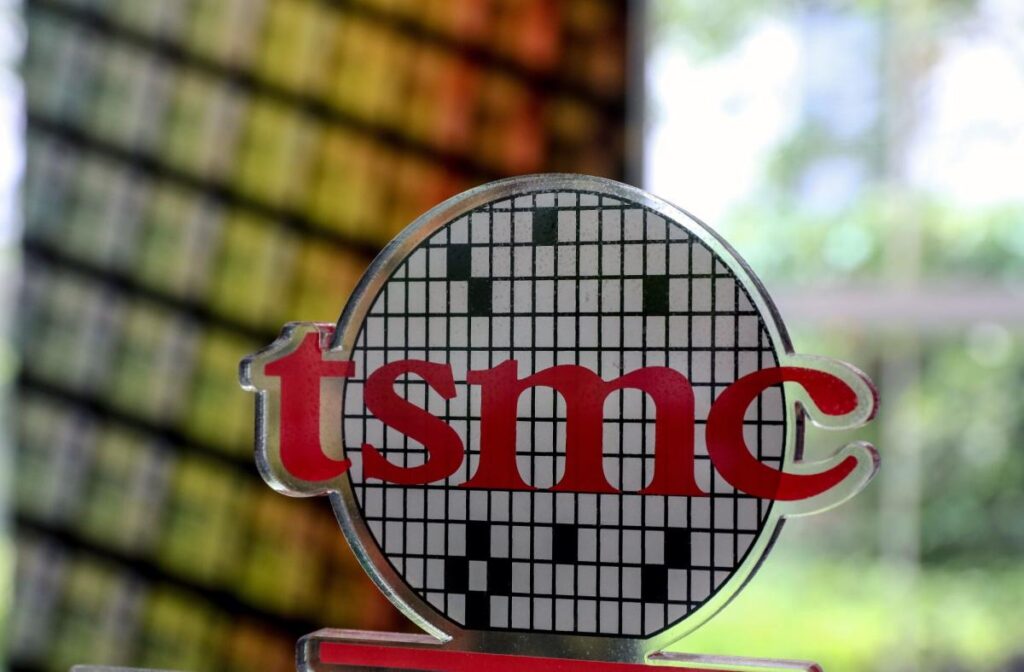(Bloomberg) — Taiwan Semiconductor Manufacturing Co. reported better-than-expected sales on a boom in artificial intelligence applications demanding more of the industry-leading firm’s chipmaking capacity.
Most Read from Bloomberg
Second-quarter revenue totaled NT$480.8 billion ($15.3 billion) according to Bloomberg’s calculations. That marked a 10% decline on the prior year, though the drop was not as bad as feared, beating an average analyst estimate of NT$476.2 billion. Sales in June came in at NT$156.4 billion.
TSMC is the primary contract manufacturer of Nvidia Corp.’s AI accelerator chips, widely seen as the best hardware for training large data models such as the one underpinning OpenAI’s ChatGPT.
The Taiwanese firm’s shares were unchanged on Monday before it reported the monthly sales figure. Goldman Sachs analysts earlier raised their target price for the company to NT$700. The stock has risen more than 25% since the beginning of the year, despite the company’s caution that revenue for 2023 might fall low- to mid-single digits in US dollar terms.
“We view TSMC as the key AI enabler among our Taiwan semi coverage thanks to its leadership stance in leading edge nodes and advanced packaging technology,” Goldman Sachs analysts Bruce Lu and Evelyn Yu said ahead of the results. The company has 37 buy recommendations, one hold and no sells, according to data compiled by Bloomberg.
What Bloomberg Intelligence Says
Smartphone demand headwinds are proving more formidable than anticipated, detracting from robust AI chip orders. Although TSMC’s reported sales beat consensus, after adjusting for currency tailwinds, results lie at the mid-point of the guidance range. In my view, this underscores the significance of the soft smartphone sector on its overall performance. Moving forward, market conditions warrant closer scrutiny, particularly any indicators of smartphone demand recovery, to gauge their potential impact on 2H earnings trajectory.
— Charles Shum, BI analyst
–With assistance from Jeanny Yu.
(Updates with BI analyst commentary)
Most Read from Bloomberg Businessweek
©2023 Bloomberg L.P.


